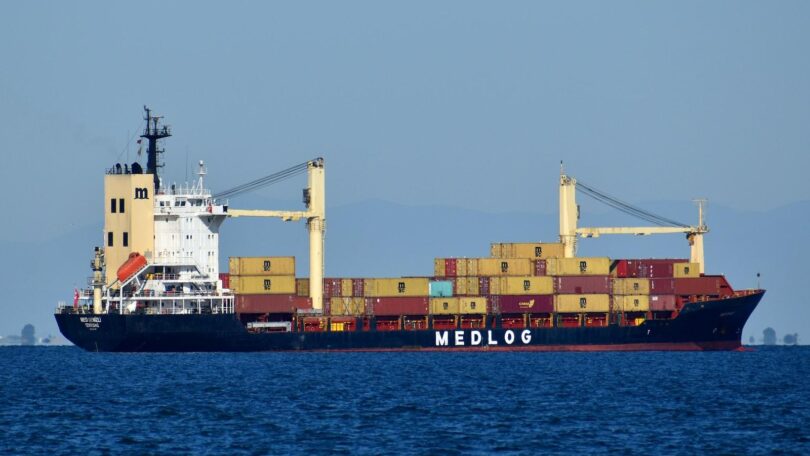International trade can seem like a daunting and complicated undertaking, and with an ever increasing volume of global commerce, navigating the different laws and regulations involved is a must. But with the right knowledge and strategies, your business can move ahead with confidence when dealing with international trades. Learn how to navigate the complicated laws and compliance by gaining a deeper understanding of international laws and rules of international trade.
1. International Trade 101: Understanding the Basics
International trade is an essential part of the global economy, yet the complexities of the regulations that accompany it can be overwhelming. Companies that take part in international trade must take great care to ensure they are in full compliance with the laws of the countries in which they operate. Here are some key things to keep in mind:
- Knowledge of Law and Regulations – Before a company engages in any international trade, it must have a thorough understanding of the laws and regulations of the countries involved. This includes not only familiarizing itself with the tariffs and other import-export restrictions, but also understanding the overall business environment in each jurisdiction.
- Research on Relevant Taxation Rules – As with domestic trade, companies that are involved in international trade must understand the relevant taxation rules and ensure that taxes are paid properly. This may involve filing additional paperwork and ensuring compliance with tax treaties that may exist between two countries. Companies must also understand the impact of double taxation and taxation of different kinds of legislation.
- Calculate Shipping Costs – When engaging in international trade, companies also must consider shipping costs. Companies must consider factors such as currency exchange rates, cost of freight, and relevant tariffs and taxes. Companies must also review insurance requirements and customs regulations to ensure their goods reach their destination safely and on time.
- Accounting Control – Companies must maintain proper accounting controls in order to keep track of transactions and ensure compliance with regulations. This includes ensuring all payment transactions are in compliance with the relevant laws in the countries involved, as well as implementing internal compliance procedures to reduce the risk of fraud.
- Exporting Compliance – Every country has its own regulations and requirements for exports, and companies must be aware of these when planning international shipments. Companies must be heavily aware of relevant laws regarding the products they are exporting, as well as with regards to any intellectual property involved in the exports.
Understanding international trade laws and regulations is an essential part of a successful and compliant global business. Companies must ensure that they thoroughly research relevant laws and regulations and ensure compliance with them in order to stay competitive and financially viable in the global market.
2. Navigating Complex Laws and Regulations
An internationally successful trade organization must be especially well-versed in the legal landscape. A myriad of rules and regulations must be adhered to in order to conduct business cross-border, and this requires a deep understanding of a variety of laws and compliance procedures.
Before engaging in international trade, it’s important to have an accurate picture of this legal landscape. Here are a few tips to help you navigate this complex web of regulations:
- Research the Country: Make sure you understand the foreign market you’ll be entering, its regulations, laws, regulations, and procedures. Have a thorough understanding of the host country’s laws and regulations before starting any operations.
- Know Your Product: Make sure you understand the properties of the product you’re shipping, such as its composition, destination markets, and any associated restrictions.
- Get Professional Help: If you’re not sure what specific regulations your product may be subject to, consult with a legal representative to ensure that you’re compliant with the applicable laws.
- Deliberate Regulations: Carefully consider any taxes and import duty fees associated with international shipping. Have a clear understanding of the paperwork and documents involved in international business.
- Protect Your Investment: Take proactive measures to limit your risk of violating trade laws. Have a sound understanding of patent and copyright law to ensure that you protect your intellectual property rights.
All international business operations should be conducted with utmost care. Take the necessary steps to ensure that all trade is compliant with applicable international and domestic laws. Understanding the laws governing joint venture operations, foreign direct investment, and anti-bribery laws can protect your company’s investments and profits.
If you’re embarking in a global enterprise, make sure you understand the laws and regulations to which it will be subject. Businesses engaged in global trade must adhere to applicable legal requirements. Failure to comply can result in costly penalties, so make sure you do your homework before engaging in international business.
3. Ensuring Compliance: Tips for New Exporters
1. Research Local Regulations: As the goal of exporting is to expand a business’ market beyond its current borders, novation exporters must be aware of the laws and regulations pertaining to the countries in which they plan to export. Understanding and adhering to these regulations is fundamental to success, but some relevant regulations may be unique to each specific country. To avoid unknowingly contravening any foreign laws, exporters should consult legal counsel and extensively research laws in each target country.
2. Learn About Export Controls: Some countries impose export control laws on goods and services that are manufactured or shipped internationally. These laws govern what items can be exported, the process for obtaining export licenses, and the nature of disclosures needed to be compliant. Familiarizing oneself with the US Export Administration Regulations and the US Customs and Border Protection regulations is a great place to start when researching export controls.
3. Utilize Global Commerce Services: Using a third-party global commerce service (GCS) can relieve some of the burden of researching export controls and complying with relevant regulations. GCSs are organizations that specialize in providing support and guidance to exporters. They can provide assistance with customs clearance, product labeling, and other legal requirements.
4. Invest in Compliance Systems and Training: Complex regulations can overwhelm even the most experienced exporter. One way to mitigate the complexity of compliance is to invest in an export management software system. This system helps exporters automate their compliance processes and ensure accuracy. Additionally, due to the nature of trade laws and their frequent changes, exporters should consider providing ongoing training for employees on these topics.
4. Best Practices for Secure and Ethical Trade
When it comes to international trade, understanding the laws and regulations is essential for everyone involved. One of the most important rules when it comes to this type of trade is to always act with ethics and security. Here are some of the :
- Promote Transparency: Ensuring full transparency is essential in international trade. Always ensure that the suppliers and buyers playing a role in trade are open and honest about their practices. Keeping in line with legal regulations and being familiar with the global marketplace will help strengthen the security of the trade.
- Reduce Risks: Reducing risks of any kind can be done by investigating into the background, context and other related variables of the trade agreement. Know who you are dealing with and secure proper paperwork and documentation before entering into any trade agreement.
- Establish Rules and Regulations: Having well-defined rules and regulations in place for the international trade will protect everyone involved. Decisions should be made in compliance with international marketing laws and regulations.
- Adhere to Government Policies: Every country has its own set of laws regarding international trade. Be aware of the policies of your government, which can help protect both buyers and sellers. Additionally, ensure that both parties are fully aware of any implied duties, taxes, or fees.
- Gather Intelligence: Gathering intelligence on a company and researching its financial background is essential for any trade deal. Know exactly what to expect from partners and customers involved in the trade.
Secure and ethical trade is the foundation of any successful international trade. Following the best practices listed above, along with understanding the laws and regulations applicable to trade, can help maintain a secure and ethical trade environment.
5. Key Considerations for Expanded International Trade
Customs and Tariffs
When trading internationally, it is important to familiarize yourself with customs and tariff regulations. Different countries may charge different duties and tariffs, depending on the origin or destination of the goods. Understanding these regulations can help avoid delays in the importation of goods, not to mention potential penalties and fines from customs authorities. Varying transport regulations also change from nation to nation, and it is essential to consider legal provisions and exemptions to understand the full implications of international trade in a particular nation.
Foreign Exchange Laws
Exchange laws and regulations also differ from nation to nation. International businesses must understand the legal implications of foreign currency exchange in order to ensure compliance with relevant laws and regulations. Cross-border currency transactions must also be carefully monitored to ensure that the applicable exchange rate is in line with local currency regulations.
Sanctions and Licenses
When considering international trade, it is important to remain aware of applicable sanctions and licenses. Different nations may impose trade restrictions, and it is important to understand the implications of trading with sanctioned nations. Additionally, some nations may impose license requirements for certain industries, requiring businesses to obtain permission before engaging in certain activities.
Data Security
In the digital age, data security is an essential consideration for trading internationally. As data crosses international borders, businesses must ensure that they comply with applicable data protection laws in order to protect customers and comply with regulations. Similarly, businesses should attend to their cyber security needs in order to protect confidential information.
Environmental and Social Responsibility
Businesses trading internationally must also remain aware of their environmental and social responsibilities. International companies must take responsibility for their environmental impact, as well as any human rights related issues. Companies must understand the existing laws and regulations to ensure their operations comply with all applicable standards. International trade is a complex business, but awareness of the laws and compliance standards is an essential part of the process. Keeping these considerations in mind, companies can make the most of international trade opportunities and take advantage of the global marketplace.








